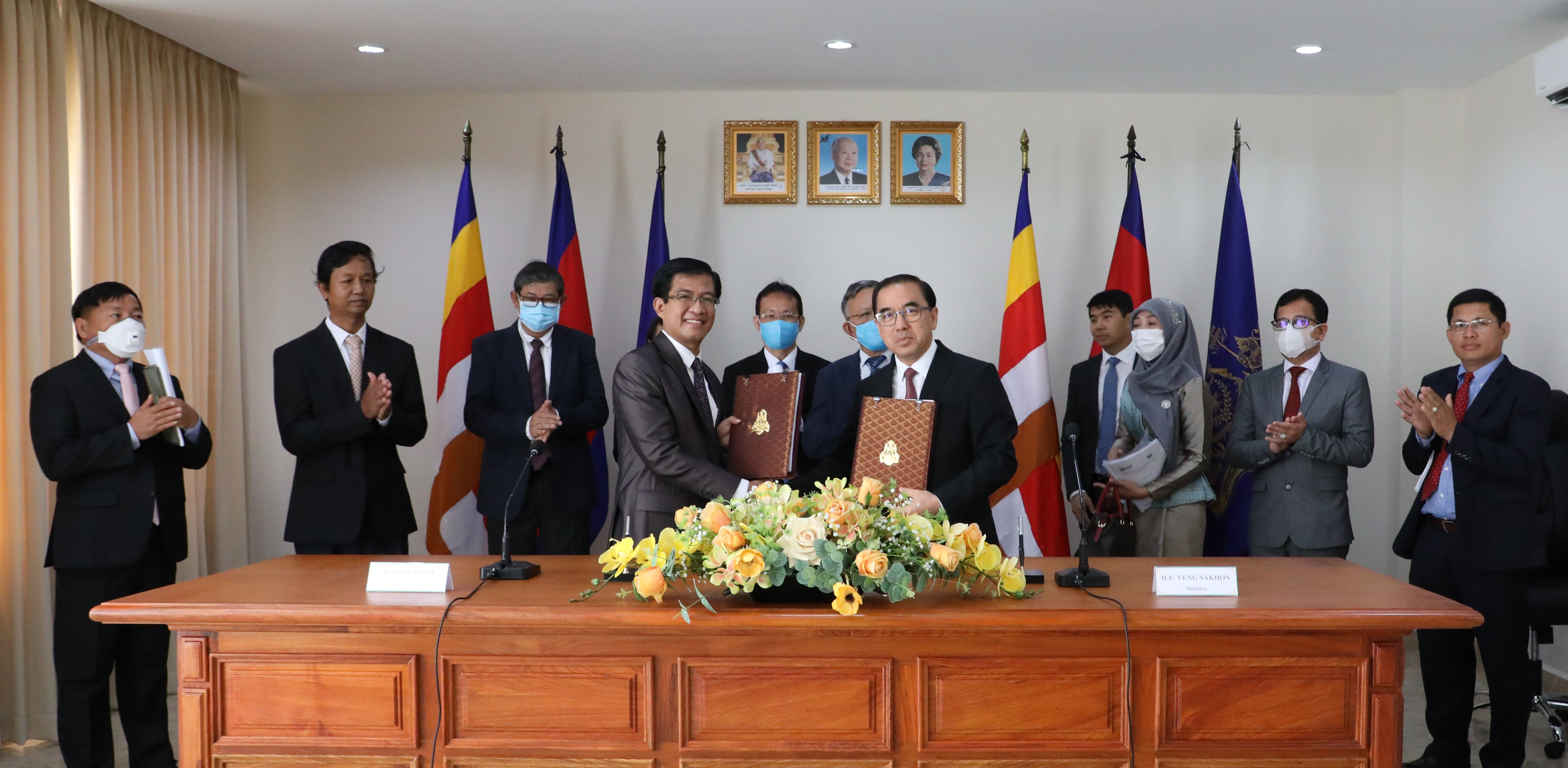Cambodia and IRRI sign 4-Year Collaborative Work Plan to modernize and accelerate rice sector

Phnom Penh, 20 May 2020 - The Royal Government of Cambodia, through the Ministry of Agriculture, Forestry and Fisheries (MAFF), recently strengthened its strategic partnership with the International Rice Research Institute (IRRI) with the signing of a Collaborative Work Plan for 2020-2023. The agreement will further strengthen the cooperation between MAFF and IRRI on research and development activities.
The signing, held at the minister’s office in Phnom Penh, was led by His Excellency Veng Sakhon, Minister of MAFF, and Dr. Yurdi Yasmi, IRRI’s Regional Representative for Southeast Asia. The ceremony was witnessed by a limited number of guests who were advised to wear protective masks and practice social distancing.
With the signing of the Collaborative Work Plan, IRRI seeks to boost its collaborations with MAFF and other national partners to advance the following key goals: 1) enhance the commercialization of the rice sector through value chain assessment and strengthening; 2) enhance productivity and resiliency through germplasm conservation and utilization, crop improvement, and seed system development; 3) enhance sustainable management of agricultural land through climate-smart production techniques, optimization of diversified land management options, and landscape monitoring, modeling, and planning; and 4) promote agricultural modernization through on-farm mechanization, post-harvest, and by-product management.
Under the MAFF, other partners include the Cambodian Agricultural Research and Development Institute Council (CARDI), the General Directorate of Agriculture (GDA), the Department of Agricultural Extension (DAE), as well as other government agencies and non-government organizations, agricultural universities, and the private sector. The agreement also has provisions to work with organizations within CGIAR, the world's largest global agricultural network, of which IRRI is a founding institution.
IRRI’s support for Cambodia’s rice sector began in the 1960’s, when it trained Cambodian scientists and collected over 4,000 local rice accessions for conservation in the International Rice Genebank. In the late 70’s and early 80’s, many traditional rice varieties were lost due to conflict and famine, and IRRI was able to repatriate 766 varieties to replenish the country’s rice diversity. The partnership was formalized with the first Memorandum of Understanding in 1986, and through IRRI’s continued support, Cambodia was able to significantly increase its rice production from 2.4 million tons in 1993 to 10.8 million tons in 2019. Transformations in rice-based farming systems have also played a key role in the country’s recent economic development and growth.

“Cambodia is pleased to enter into increased collaboration with IRRI, our long-time partner and ally in the development of our rice sector,” said Minister Veng Sakhon. “The Royal Government places strategic importance in strengthening the role of the agricultural sector, with rice-based farming systems central in generating jobs, ensuring food security, reducing poverty, and developing rural areas. This new Work Plan will be key to achieving our national policy goals and contribute to the country’s economic transformation.”
“We are most grateful to Minister Veng Sakhon and the Royal Government of Cambodia for their continued trust and support to IRRI,” said Dr. Yasmi. “Our partnership has had many significant achievements over the decades, from rice breeding and genetic conservation, to climate change resilience and capacity building. Most recently, last year Cambodia unveiled its first national seed strategy policy with consultation and support from IRRI. As the country prioritizes the modernization of its rice sector, IRRI is excited to work more closely with our partners to achieve their R&D objectives, and contribute to the nation’s advancement of the Sustainable Development Goals.”